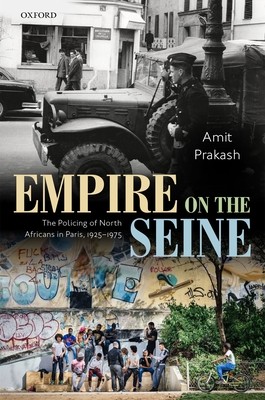
- We will send in 10–14 business days.
- Author: Amit Prakash
- Publisher: Oxford University Press, USA
- ISBN-10: 0192898876
- ISBN-13: 9780192898876
- Format: 16.4 x 23.7 x 2.1 cm, hardcover
- Language: English
- SAVE -10% with code: EXTRA
Reviews
Description
Why are relations between minorities and the police in France so fraught? Stripping away the myth that this tension is a sudden and recent disruption of its universalist republican tradition brought on by the presence of North African immigrants, Amit Prakash locates the origins of contemporary conflicts in race and empire in France's history. In Empire on the Seine, Prakash argues that the métropole and the colony dynamically co-developed a policing regime over the course of the nineteenth and twentieth centuries to manage colonial and racial difference. With the North African community emerging as a sizable and durable presence in Paris after World War I, this policing became a key state practice in imagining and administering the immigrant population. Prakash shows that despite the French state's current reluctance to use race as an official category, racial thought and racial targets animated police services, social services, and urban planning schemes from the 1920s until
the 1970s.
EXTRA 10 % discount with code: EXTRA
The promotion ends in 20d.06:58:37
The discount code is valid when purchasing from 10 €. Discounts do not stack.
- Author: Amit Prakash
- Publisher: Oxford University Press, USA
- ISBN-10: 0192898876
- ISBN-13: 9780192898876
- Format: 16.4 x 23.7 x 2.1 cm, hardcover
- Language: English English
Why are relations between minorities and the police in France so fraught? Stripping away the myth that this tension is a sudden and recent disruption of its universalist republican tradition brought on by the presence of North African immigrants, Amit Prakash locates the origins of contemporary conflicts in race and empire in France's history. In Empire on the Seine, Prakash argues that the métropole and the colony dynamically co-developed a policing regime over the course of the nineteenth and twentieth centuries to manage colonial and racial difference. With the North African community emerging as a sizable and durable presence in Paris after World War I, this policing became a key state practice in imagining and administering the immigrant population. Prakash shows that despite the French state's current reluctance to use race as an official category, racial thought and racial targets animated police services, social services, and urban planning schemes from the 1920s until
the 1970s.


Reviews